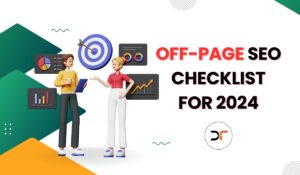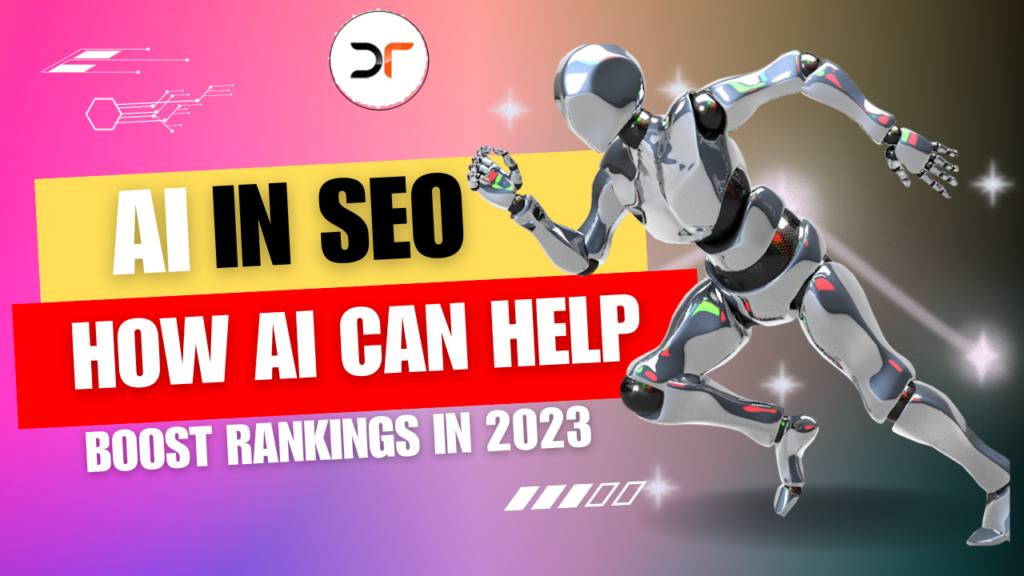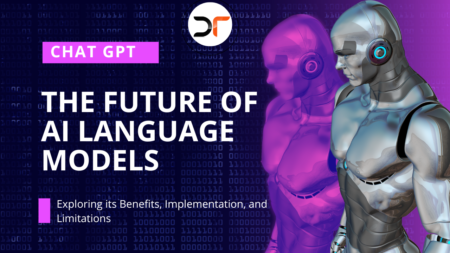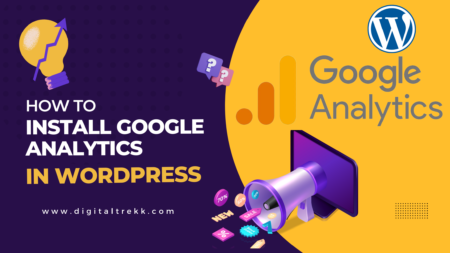Introduction:
Artificial intelligence (AI) now plays a more significant part in search engine optimization (SEO) in the current digital environment. Incorporating AI IN SEO practices has emerged as a game-changer for organizations looking to increase their online presence and draw in targeted traffic. In this blog post, we’ll look at how AI is revolutionizing SEO tactics so that businesses may improve user experience, optimize their websites, rank higher in search engines, and get a competitive edge in the digital sphere.
Understanding AI’s Place in SEO
Overview of artificial intelligence in SEO
By offering advanced algorithms and tools that can analyze enormous volumes of data, spot patterns, and provide valuable insights, AI is transforming SEO. Businesses may develop more efficient optimization methods by using AI to understand search engine algorithms and user behaviour better. SEO professionals can seize significant chances for development and success by utilizing the power of AI.
Content Optimization Powered by Use of AI in SEO:
AI-Driven Keyword Research: Finding Untapped Potential
Finding the proper keywords that match user intent is one of the main issues in SEO. AI systems can examine user behavior and search patterns to find phrases and topics that have high potential. Businesses may find untapped markets and produce content that responds to user search queries using AI-powered keyword research tools. As a result, the material created is more relevant, organic traffic is up, and search engine rankings are enhanced.
Creating and optimizing content is changing the SEO landscape.
A crucial component of SEO is regularly producing high-quality content. Automated content creation tools powered by AI make it possible to write informative and engaging articles, blog posts, and product descriptions. NLP is used by these tools to create appealing and relevant content for the target audience. Businesses may use AI to automate content development, saving time and labor while providing their audience with high-quality and exciting content. AI may also aid content optimization by examining characteristics like readability, relevance, and SEO, including keyword usage and semantic relevance.
Technical SEO Driven by AI:
Automated Website Audits: Finding and Resolving Problems
Technical SEO is part and parcel of ensuring that websites are optimized. AI algorithms can crawl websites to find technical problems that might harm SEO performance. The AI-powered website audit tools offer detailed analysis and suggestions for enhancing site structure and routine, covering anything from broken links to duplicate content.
Want to learn about AI language learning models? CHECK OUT
Optimizing Site Structure: Use of AI in SEO Crawling and Indexing
Thanks to AI’s efficient web page crawling and indexing capabilities, search engines can successfully find and index content. Businesses can raise their website’s exposure and search engine rankings by improving the site structure based on AI-driven insights. To ensure that search engines can traverse and comprehend the website’s content, AI algorithms can examine the internal linking structure, URL structure, and XML sitemaps. The possibilities of ranking better in search engine results and obtaining organic traffic are increased by this optimization.
User Experience (UX) Optimization Powered by AI:
Tailored User Experience: Increasing Engagement and Retention: To provide tailored experiences, AI systems can examine user behavior, preferences, and demographics. Businesses may improve conversion rates, boost customer retention, and increase engagement by personalizing content and recommendations for specific users. Virtual assistants and chatbots powered by AI can respond quickly to user inquiries. It can help to enhance user experience and customer satisfaction. This individualized strategy promotes long-term client loyalty and builds a strong company image.
Limitation reduction of using AI in SEO
Although AI has a lot of potential for SEO, it’s necessary to be aware of its limitations and take precautions to guarantee the quality of the output. The following are essential things to remember:
Data accuracy:
AI systems rely primarily on data inputs in terms of accuracy and quality. Make sure that regular data validation and cleansing processes involve in taking responsibility of the AI models are trained by feeding multiple data sets. These techniques ensure the delivery of accurate results while reducing bias. Businesses may improve the precision and effectiveness of their AI models. More informed and proactive decisions are made by actively verifying and cleaning the data.
Human oversight: A pre-requisite for the use of AI in SEO
Human experience and supervision are crucial, even though AI can automate and improve some SEO procedures. SEO experts should closely monitor AI-driven tactics and evaluate the outcomes. They should base their decisions on their expertise and knowledge of the market.
Conclusion
AI in SEO is revolutionizing the way businesses optimize websites, enhancing user experience and driving engagement. By leveraging AI-driven tools and algorithms, companies can gain valuable insights, automate tasks, and gain a competitive edge in the ever-evolving digital landscape.










